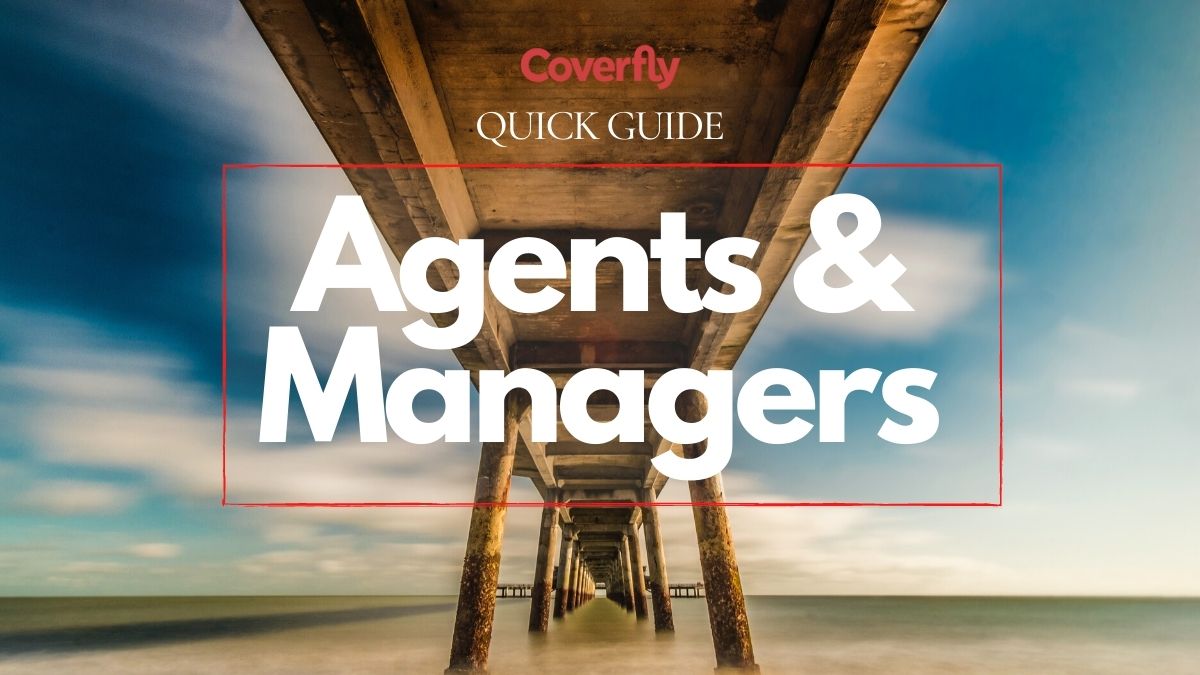
One of the most common questions we get at Coverfly is “How do I sign with an agent or manager?” There is no clear answer or path, and it is one of the aspects of the business of screenwriting with the most mystery and uncertainty swirling around it. With the help of several industry professionals, we decided to demystify this for you.
And to be clear: just because you may have representation does not mean the rest of the screenwriting journey is smooth sailing. In fact, many writers have multiple reps over the course of their careers. Like any human relationship, the writer/rep relationship can be fraught with difficulties. Issues with personality, work ethic and expectations for your career can derail what should be a positive and symbiotic relationship.
Fortunately, the panelists in the Coverfly Career Lab’s second panel shared a lot about great ways to ensure that you have the right representation for you.
KNOW WHAT YOU WANT
As an up and coming writer, jumping at any agent or manager interested in repping you can set you up for trouble. You as the writer should know your wants and needs, and it is important to know these at the start of the representation pursuit. “It’s like a relationship,” says Matt Dy, a lit manager at Lit Entertainment Group, and he’s completely right. The best relationships develop naturally and are the ones where wants and needs are aligned.
Parker Davis, a lit agent at Verve Talent Agency, offers the helpful tidbit that “new writers should seek new managers.” Writers will often go through more than one manager or agent during the course of their career. Starting with a rep who is closer to your career level can help you team up with someone who is hungry, driven, and eager to get your work out there.
RESEARCH, RESEARCH, RESEARCH
Another way you can know who the best reps are for you is to do your homework! “Do your due diligence” says Parker. By doing your research, you demonstrate that you’re proactive and understand the industry., Managers and agents are always eager to work with writers who aren’t afraid of doing the work.
It can also help to lean on other writers to get this homework done. Matt suggests writers groups as a great way to figure out the right reps for you (as well as commiserate with people going through the same journey as you). Not only that, but according to Ava Jamshidi, lit manager at Industry Entertainment, “building your network is how you build your opportunities.” Always remember that writers can help other writers!
Another effective way to connect with managers and agents is via reputable screenwriting competitions which showcase their winners and finalists to their industry partners and judges. Hundreds of writers have signed with their first reps via industry writing competitions. Coverfly has a list of reputable screenwriting talent-discovery programs with upcoming deadlines. Click to submit your script here.
FIGURE OUT YOUR WORK PROCESS
Difference in work schedules and processes can also create a divide between writers and their new reps. You may be a seven outline kind of writer, but you could find yourself with a manager who wants to read a full draft first. Or you could have a micromanaging manager when you work much better independently.
So how can you avoid this pitfall? Write a lot of material (especially at the beginning of your career). “Make an effort to give us stuff to do stuff on your behalf” says Ava. It is important to remember that high output is vital. Telling reps how much you write is really important. Also, Matt Dy offers a good piece of advice; “operate like a working writer”. That means treating your writing like your job and showing up every day to write pages and make progress on your scripts.
DON’T LOSE YOUR VOICE
You’ll probably see this running motif through these blogs, but having a unique voice is one of your most important assets as a writer. Finding and keeping your voice establishes your brand as a writer. Your unique voice helps showcase your passion as a writer, and “passion stands out” says Parker. Matt also encourages writers to use their “voice to stand out in a crowded field.”
So how does that translate into getting reps? It is important to use your voice to keep the work you are presenting consistent. This helps a rep know how to market you to the industry so you can get hired for writing assignments, sell your projects and get staffed on television shows. Also, it is crucial to learn how to keep your voice present in writing script after script. “Don’t dilute your voice writing in ten different things” says Ava, which is important to establish for a successful career.
And be sure to write a great professional bio for your Coverfly profile. Agents and managers are perusing Coverfly's database every day looking for emerging writers who are ready to sign with professional representation. Having a great Coverfly profile can help you stand out.
Curious about the difference between agents and managers? Check out this blog post from our partners at ScreenCraft: 8 Differences Between Agents and Managers
---